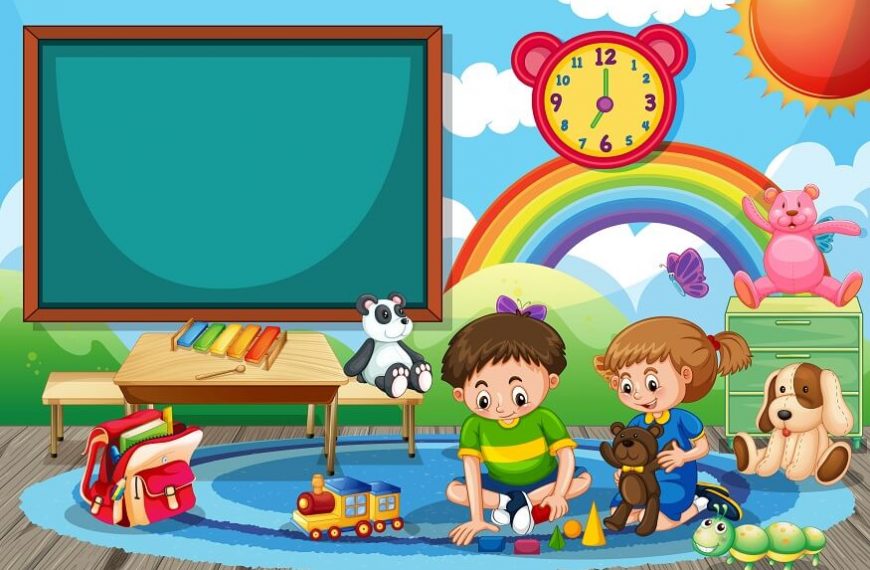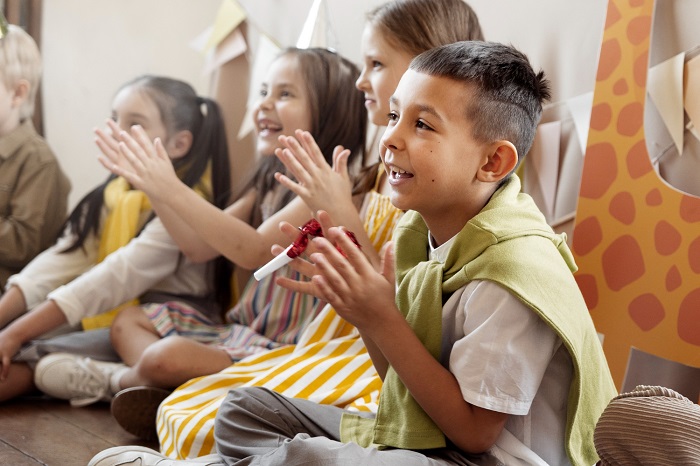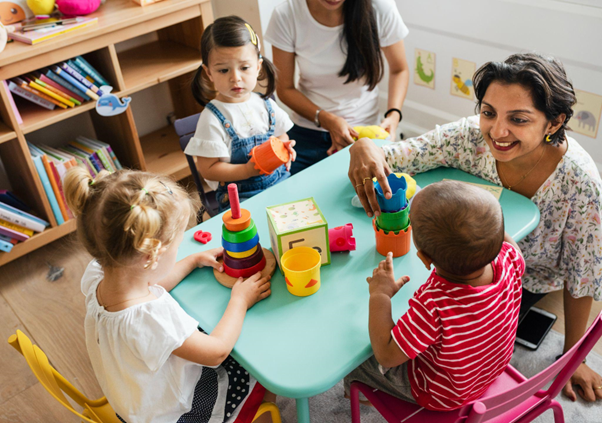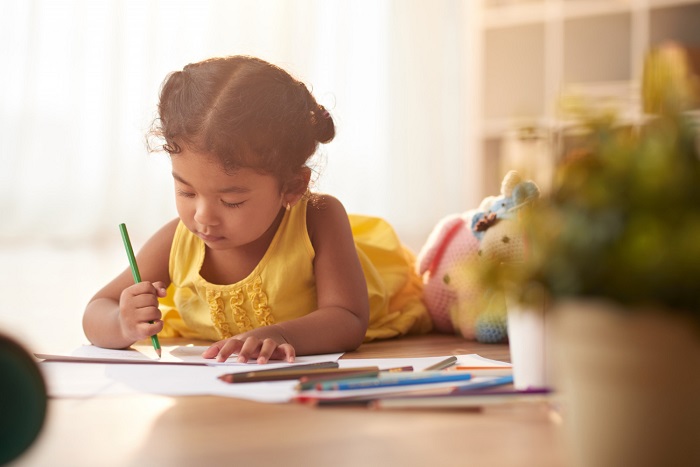Preschool, the magical place where young minds flourish, plays a pivotal role in shaping your child’s journey of learning and discovery. Enrolling your little ones in preschool offers a wealth of advantages that lay the foundation for their success. This blog will discuss the importance of preschool for your child’s development and outline seven major benefits of preschool education.
What is the Importance of Preschool?
Picture this: your child is gleefully engrossed in a group activity, beaming with pride as they share their artwork with newfound friends. Preschool is where social and emotional development takes centre stage. Through play and interactive sessions, children learn vital social skills like sharing, taking turns, and cooperating with others. They build lifelong friendships and develop emotional intelligence, understanding and expressing their feelings in a supportive environment.
Benefits of Preschool
Here are some of the benefits of preschool education:
- Social And Emotional Development
- Cognitive And Language Development
- Preparation For School
- Holistic Development
- Enhanced Communication Skills
- Development Of Motor Skills
- Encouragement Of Curiosity And Creativity
Preschool allows children to socialise with their peers while also learning key social skills. Children develop social bonds through play and group activities and learn to share, take turns, and cooperate with others. They also enhance their emotional intelligence by understanding and expressing their feelings in a supportive environment. This early exposure to social interactions prepares children for future school experiences and helps them build strong relationships.
Preschool is a time of rapid cognitive and language development. Preschool curriculum often focuses on early literacy and numeracy, laying the foundation for future academic success. Children are introduced to letters, numbers, shapes, and colours, while also developing listening skills and speaking skills. These early cognitive and language experiences enhance children’s comprehension and communication abilities.
The preschool serves as a vital transition from home to formal schooling. It introduces children to a structured learning environment and helps them adjust to a routine. By following a daily schedule, children develop self-discipline and organisational skills. They learn to follow instructions, raise their hands to participate, and engage in group discussions. These early preschool experiences help youngsters develop a sense of independence, confidence, and a love of learning, preparing them for the intellectual demands of primary school.
Preschool programmes emphasise the whole development of young children, including their physical, cognitive, emotional, and social health. Moreover, activities like art, music, physical education, and outdoor play promote the development of fine and gross motor skills. This enables children to express themselves creatively, explore their interests, and develop an appreciation for the arts.
The interactive activities during the introduction to preschool allowed the children to develop their communication skills. Preschool provides a nurturing environment where children can express themselves freely and build effective communication skills. Teachers encourage children to articulate their thoughts, ideas, and emotions, fostering language development and confidence in expressing themselves. Furthermore, preschool promotes active listening, as children learn to pay attention and respect others’ viewpoints during group activities and discussions. These communication skills lay the groundwork for effective communication in future academic and social settings.
Preschool activities often involve physical play and exercises that help develop children’s motor skills. Children eagerly participate in a diverse array of physical activities, igniting their coordination, balance, and strength, thus fostering their holistic physical development. Fine motor skills are also honed through activities like drawing, painting, and manipulating small objects, which support hand-eye coordination and dexterity. The development of these motor skills during preschool years is crucial for children’s overall physical development and sets the stage for a healthy and active lifestyle.
Preschool encourages children to explore their natural curiosity and imagination. Through open-ended activities, such as building blocks, pretend play, and storytelling, children develop their creative thinking and problem-solving abilities. Preschool nurtures their innate sense of wonder and curiosity, creating a lifelong love for learning and fostering a growth mindset.
The Role of Parents in Preschool Education
Your involvement in your child’s preschool education is critical. While preschool provides an enriching environment, your support and participation further enhance their learning experience. By actively engaging with your child’s preschool journey, you can reinforce their development and create a stronger bond with them.
Parents can support their child’s preschool education in the following ways:
- Open Communication with Teachers: Keep in touch with your child’s teachers frequently to learn about their growth, talents, and areas for improvement. Share any concerns or observations you have, as your insights are valuable in shaping your child’s learning journey.
- Discussing What Kids Learned Every Day: Extend the learning that takes place in preschool to your home environment. Reinforce concepts taught in school through play, discussions, and age-appropriate activities. Encourage reading together and engage in meaningful conversations to stimulate their language skills.
- Celebrate Achievements: Celebrate your child’s accomplishments, no matter how small. Recognise their efforts, praise their achievements, and provide positive reinforcement. This boosts their confidence and motivates them to continue their learning journey with enthusiasm.
- Active Participation: Attend parent-teacher meetings, school events, and workshops to gain a deeper understanding of your child’s progress and the strategies employed by the preschool. Working with teachers and staff to establish a happy learning environment for your child is essential.
Your active participation in your child’s preschool education is vital. Foster a nurturing environment at home and school, partnering with their teachers to support their growth and learning.
Conclusion
We hope this blog helped answer the question, why is preschool important? Enrolling your child in preschool is like stepping into a world of limitless possibilities. Just imagine the excitement on their faces as they proudly recite the alphabet or count to ten for the first time. The importance of preschool education is immense. Preschool provides a nurturing environment that nurtures their curiosity, sparks their imagination, and instils a lifelong love for learning. The benefits of early childhood education extend far beyond the preschool years, shaping your child’s future academic achievements and personal growth. Worried about your kid’s first day at school? Check out our blog, Five Tips For Putting Families At Ease On Their First Day Of School, for tips to ease your little one on their first day of school. Don’t forget to check our EuroKids Blogs for such tips and guides on your little one’s learning and development.
Ready to embark on this incredible journey of preschool education? Consider EuroKids, where every child is cherished, nurtured, and given the wings to soar. With a focus on holistic development and a child-centric approach, EuroKids provides a safe and stimulating environment for your little ones to thrive. Our well-structured curriculum, experienced educators, and commitment to nurturing young minds make us the perfect choice for your child’s preschool education.














